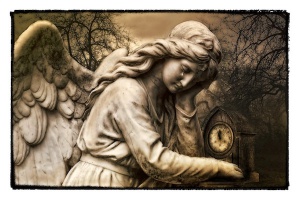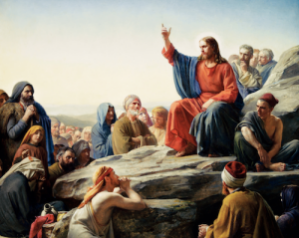Perimeno
Did the foretold "critical times hard to deal with" begin in 1914, or is that still future?
Q: Paul mentions the last days would be critical times hard to deal with, due to the fact 1914 has no relevance to bible chronology and Jesus coming or presence I was wondering when Paul’s words apply. When considering the world scene is unparalleled in history as far as environmental destruction, social disorder, etc, etc do the critical times apply to this time period or is it still to come? Jesus also stated in Mathew 24: 8 ”All these things are a beginning of pangs of distress”. So I’m wondering how this relates considering this has not happened yet but world condition are trending downward?
A: We sometimes lose sight of the fact that it was Jesus’ disciples who asked the question about the “conclusion of the system of things” and the sign regarding his presence; and it was to them that he gave the answer. They themselves could see the fulfillment of many of the signs, as they were directly affected by what was happening within the Jewish system of things. But not everything that Jesus foretold happened in the first century, as it is also not exclusively applying to our day, as some believe. For example, compare Jesus’ words regarding the “conclusion of the system of things” in Matthew 13:36-50 with that of Matthew chapter 24. The “harvest,” which is a “conclusion of a system of things,” of Matthew 13 did not happen in the first century, for we know Jesus said that the wheat and the weeds needed to grow together until the harvest when both could be clearly identified. The harvest has to do with the time of his return in kingdom glory. (Matt. 25:14-33; Luke 12:40-46)
You are right in saying that "1914 has no relevance to bible chronology and Jesus' coming or presence." WW I did not mark the beginning of "the time of the end", and neither did Jesus arrive in that year. All the Society's teachings regarding the year 1914 are necessary for them in order to support their claimed authority over God's people, as Paul foretold. (2 Thess. 2:3-12) It has nothing to do with Bible chronology, while it goes contrary to what Jesus told his disciples, as recorded in Acts 1:7. The importance of 1914 to the Society is based entirely on Rutherford's re-interpretation of C.T. Russell's calculations (which did not add up to 1914 but rather 1913, as Russell failed to realize that there was no zero year between 1 BC and 1 CE., which doesn't really matter anyway, because his numbers were off even when it comes to when to start the count of his number of years, which in themselves are meaningless. Russell believed that Jesus had arrived in 1874 and that the world would be destroyed in 1914, at which time all the "elect" would be taken up to heaven. That of course did not happen). According to Jesus' own words, being able to observe the sign of his presence would be evidence that his return has drawn near. Quite different from Rutherford's claim that it was proof of his presence in kingdom power since 1914. (See Matt. 24:32-34; Luke 21:28-32)
Since it was Jesus’ disciples who asked the question regarding the conclusion of the system of things, the answer Jesus gave is a sign for them, not the world in general. To help better understand this, think of Jesus’ disciples in the first century. Jesus did not provide the signs of the conclusion of the system of things to the Romans, or other unbelievers, yet the signs included things that would take place in the world, such as being hated by all the nations, or seeing Jerusalem surrounded by encamped armies (the Romans). The foretold “conclusion of the system of things” applied in the first century to the Jewish system, which had been God’s people, but who rejected the Messiah Jesus, the mediator of the new covenant, and therefore failed to be brought into the new covenant. That Jewish system passed out of existence when it was destroyed by the Romans in 70 CE. (Compare Luke 19:41-44; 21:12-22) Jesus gave the signs to his disciples in order for them not to be swept away along with the wicked. His signs did not apply to the Roman system of things that continued on for another few centuries.
In our day, the signs regarding the conclusion of the system of things―or “last days” as Paul calls them―which includes the “critical times hard to deal with” that you mention, is again primarily meant for the protection of God’s people. (John 3:17,18; 2 Tim. 3:1-7) Many of the foretold signs find their fulfillment within God’s household, since God’s judgment starts with his own people, at the time that he removes the wicked from among the righteous. (1 Peter 4:17-19; Matt. 13:40-43, 49; Ezek. 13:9,10; 2 Thess. 2:3,4, 9,10) Jesus said that we would have need of endurance, because our “critical times hard to deal with” originates with the wolves within the congregations, including the lack of love among his disciples, and the rejection of us by our families. (Matt. 7:15-20; 24:9-13; 2 Peter 2:1-3) The “time of the end,” or “the last days,” is not the last days for God’s obedient people, but for the wicked, first those within God’s house, and then also the rest of this entire world that is estranged from God. Jehovah will protect his people. (Psalms 37:10,11, 34, 37,38; 2 Thess. 1:6-10; Rev. 7:13-17; 19:17-21)
In agreement with Jesus’ words to the few disciples who witnessed his ascension to heaven, there is no way of calculating when the time of the end begins. (Acts 1:7; Matt. 24:36) No, the time of the end did not begin in 1914, with the outbreak of World War One. But we can be sure that when the time of the end does begin, we will also see at that same time the many signs that Jesus foretold regarding the conclusion of the system of things. There is no one single sign that marks the beginning. All the things foretold will take place during this short period of time of one generation. (Luke 21:28-32)
The way that Jehovah has dealt with his people in the past is also a good indication on how he will again deal with his servants in the future, especially during the time of the end. (Compare 1 Cor. 10:11) The “time of the end” begins with Jehovah exposing (“revealing”) the wickedness (“lawlessness”) of his people, making public their sins and errors, thereby calling upon them to repent. Before he executed his judgment upon the wicked in the past, Jehovah always gave them the opportunity to repent. He did this by exposing their “dirty laundry,” as one brother once put it. (2 Chron. 36:15,16; 2 Thess. 2:8) His execution of the wicked will come at his appointed time, suddenly, unexpected. (Ezek. 33:11-16; Matt. 24:37-39; Rom. 2:3-6) It will come upon that wicked generation to whom the warning is sounded, and thus the time of the end begins with the exposing of the sins of that generation, which according to past examples amounted to about forty years in each case; such as the period of time during which Jeremiah and Ezekiel preached God’s judgment; and in Jesus’ day when John the Baptist began preaching repentance and baptism for forgiveness of sins. (Matt. 3:7-10; 23:36-38; Num. 32:13) Jehovah does not tell us in advance when the time of the end begins, but we can figure that out after the time period of warning the wicked has expired; and most likely it will turn out to be, like in the past, something that we had noticed at that time but perhaps failed to appreciate the significance of, as was true in Jeremiah’s time and also in the first century for the Jews, when in both cases the wicked refused to pay attention. (Matt. 13:13-15)
Are we now witnessing the foretold signs that the Scriptures provide, both, within the congregations and in the world in general? Paul says that “[we] are not in darkness, so that that day should overtake [us] as it would thieves, for [we] are all sons of light and sons of day. We belong neither to night nor to darkness.” (1 Thess. 5:2-5) Accordingly, those of us who are awake to the evidence will realize that we are well along in the time during which Jehovah is calling upon his people to repent, bringing to our attention our sins and ever changing “inspired expressions of error” that are taught in his name; all of which are being widely discussed all over the world by means of the modern world wide web, the internet. (1 John 4:1, 6; Rev. 2:5, 16, 21-25; 3:3, 19)
I hope I have answered your question. I know it is not what the Society teaches. Before we can see through the things that we have absorbed over the years with our minds at the meetings and in our publications, we need to cut through that and see it in light of what the Scriptures tell us, and discern what we see happening around us, including in our congregations. (Matt. 9:16,17)



